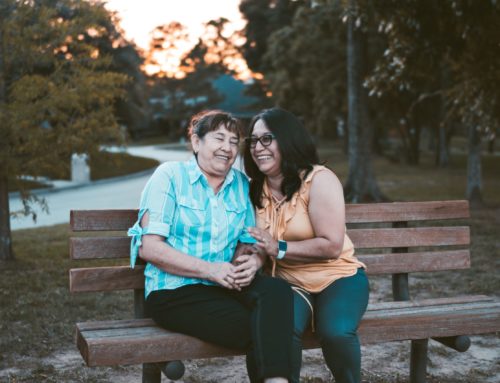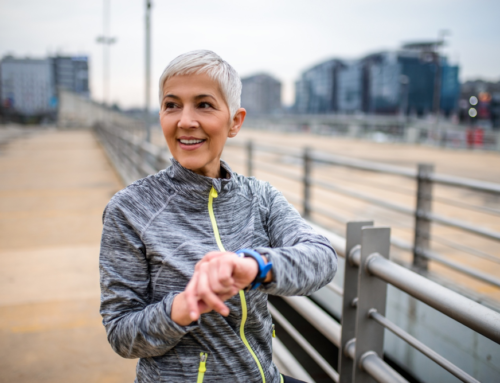Associate Professor Prue Cormie is an Accredited Exercise Physiologist whose research and clinical work focuses on the role of exercise in the management of cancer. Her track record includes over $3 million in competitive research grant funding and over 70 refereed publications and book chapters. She leads the Exercise Oncology Team within the Mary MacKillop Institute for Health Research.
Prue’s research program seeks to understand the application of exercise as medicine for the management of cancer and involves the convergence of exercise science, cancer care and innovation in allied health services. She has been recognised with awards including the Exercise and Sports Science Australia’s Women in Leadership Award, Western Australia Young Tall Poppy of the Year Science Award and the Cancer Council Western Australia Early Career Cancer Researcher of the Year Award.
Prue sat down with Valion Health to discuss the history and development of exercise oncology, and how we might think about integrating best practice exercise support for all people diagnosed with cancer.
Michael: Prue, you’ve been involved with many areas of research over the years. What current areas of Exercise Physiology research are most exciting to you?
Prue: I would say there are a couple of key areas that are really exciting. First and most importantly, the patient’s implementation research. Which looks at practical strategies to enable doctors to prescribe exercise and patients to take that exercise. That’s one element that’s extremely exciting.
I’m also interested in research into areas that we don’t know enough about, but that actually make a big difference to patients’ lives. For instance, how do we engage patients with the worst symptoms, or who have the most fatigue or the highest level of distress and depression? How do health professionals actually get them to exercise and benefit from exercise? Or the patients that we think as practitioners are higher risk – patients with wide spread cancer, metastatic disease… how do we exercise those patients safely and effectively?
The third area of research I find very exciting is the mechanisms behind using exercise to enhance cancer outcomes. So looking at exercise as a way to potentially lower the relative risk of dying from cancer or the cancer coming back.
I think out of those three areas there’s heaps of really important practical information and information that can change the field.
Michael: How have you seen the Exercise Oncology field change, over the last 10 or 15 years?
Prue: Yeah, it has been through rapid change. I spend a lot of time talking to different nurses and patients and there’s been a very clear shift. We used to need to really talk about the effectiveness of exercise and try to sell the message that exercise is beneficial. But that’s changed now. People don’t question whether or not exercise is important, nurses and patients want to know how to facilitate and practise exercise.
But I think the biggest change has been the shift in momentum-the science is strong enough now to actually start driving change in practice and prescribing exercise. Without it, cancer patients will experience worse physical deconditioning, worse cancer related fatigue, worse distress and poorer quality of life.
The next step is to transition from acknowledging the evidence, to actually making meaningful improvements in the service to assist people with cancer. I think that’s been quite a remarkable change in the last couple of years.
Michael: Following from that in terms of implementing all of this fantastic research and clinical practice, how do you think that funding models can be improved to improve access to Exercise Psychology professionals?
Prue: There is so many ways to do this … Hospitals could be incentivised through a KPI system that allows for more funding to come in, for more referrals to access those, or a greater number of exercise prescriptions provided to cancer patients. And of course, the potential to actually change MBS items and provide oncology specific subsidies for exercise services.
If you look at the evidence in diabetes and the fact that there’s a lot of diabetes or dedicated diabetes MBS items, we certainly could be evolving and advocating for the same thing for cancer and exercise physiology. We need to incentivize hospitals to innovate cancer products, offer consults within the hospital and then facilitate the transition into community based exercise close to people’s homes and work through dedicated MBS items. That’s what we need to really get exercise embedded into standard cancer care.
The evidence is crystal clear in terms of lowering medical health expenses, getting patients back to work faster, minimizing sick days at work. There’s a very strong economic argument for health insurance and government as well as hospitals.
Michael: Do you think there’s a role for NGOs and Not for Profits within that as well?
Prue: Well, for patients, exercise can have a profound impact on their life. It’s more than their health, it’s their life – it’s about moving beyond cancer and re-engaging in things that are really important to people. So that might be work or family life or social life or community service.
Funding in this space has potential to make an immediate and tangible impact on patients’ lives, exercise is a huge area of investment that is receiving no money right now. So I think there’s a huge role in any NGO, anybody raising money for cancer. If they want to make an immediate impact on the lives of people with cancer then exercise is certainly a way to go.
Michael: How do you think people can be empowered to exercise when they have a cancer diagnosis?
Prue: Yeah, that’s such an important question because so many people just listen to their doctor and don’t take an active role in their health care. We need to make sure that we as an industry provide patients with resources and information about exercise, so they can raise it with their doctor, nurses and oncology team and demand these services.
Things like the COSA Position Statement, the ESSA Consensus Statement and other statements coming from professional bodies representing really important influential industries, allow patients to have an awareness of what they can receive in an exercise space and also provide the documents so that they don’t have to know everything about it. So I think by providing general, basic information and basic resources to patients, that can be a first step in helping them drive their doctors to provide better care.
Michael: When should someone with cancer seek exercise advice?
Prue: From an evidence-based perspective, introduce an exercise physiologist as soon as possible. We have seen in our research and clinical work thousands and thousands of cancer patients saying “I wish I had known about this. I wish somebody told me about this sooner and I wish I started this sooner.”
So I would definitely push to say as soon as possible, as soon as a patient is ready and able to engage with an exercise physiologist- irrespective of whether they started treatment or not. As close to diagnosis as possible.
This is what we’re advocating for. There should be a cancer specific exercise physiologist at every single health service that has an oncology department in it. There is absolutely no doubt that the care of cancer patients would be enhanced with an exercise physiologist being on the Multidisciplinary team.
That’s not to say that exercise physiologists don’t need to actually deliver exercise in the hospitals to all those patients, but they should have at least one face-to-face consultation with patients. This would individualise the advice patients receive from doctors, and create a time to talk through the advice and empower patients to access services. That could happen within the hospital or within a community-based environment.
There’s no doubt that cancer care would be enhanced dramatically through including exercise physiologists in the MDT. It should be standard care.
Michael: What does the future of exercise and cancer look like? What would you like to see in Australia in 10 years or 15 years?
Prue: I would like to see every single cancer patient referred to an exercise physiologist.
The future looks like every doctor prescribing exercise to every patient in every single possible hospital, that every single cancer patient has free access to seeing an exercise physiologists, as part of their cancer care.
And that’s at least one consultation at various time points throughout their treatment. This systematic approach is ideal to implement exercise medicine in the community. Evidence shows that patients will engage more if it starts in hospital and transitions into the community space and their community.
If we have funding and resources for a systematic approach to delivering exercise medicine cancer care in a community, that’s our ideal situation. Doctors prescribe exercise physiologists in a hospital, individualize and refer to really define systems and models of care in the existing communities.
To learn more about our cancer support program, contact us at [email protected]



